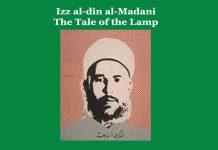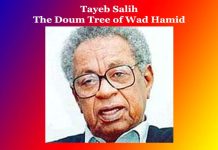Shaukat Osman | The Prize | An Analytical Study
Shaukat Osman | The Prize | An Analytical Study
Shaukat Osman | The Prize | An Analytical Study
‘The Prize’ is a Bengali tragic short story written by Shaukat Osman, a Bangladeshi writer who writes in Bengali. Injustice is the main theme of the story.
It is a story of a small orphan named Izad who is the son of a beggar. Both his father and mother were dead. He lives under the temporary guardianship of a negligent woman whom he calls to be his mother. She is also a beggar. One day there was a “dress as you like” competition in the park of a city. Many boys and girls participated in it. Almost all the children that participated in the competition are born of high families. Izad also goes there not as a participant but as a street boy. The beggar woman whom he calls to be his mother asked him to stay there till she goes to pick him up. In his wearing there are rags and he is shabbily dressed. He does not even know the meaning of Dress Competition. Going there in the park he slouched sleepily on the root of a big tree. When he woke up it was afternoon. Many distinguished women with their children have come to the spot of competition to enjoy it. Izad sees that all the boys and girls have dressed differently. One girl has on a Chinese dress, another is dressed as a tribal girl, one boy has put on the mask of a cat and another looks like a bandit, a pistol hanging on his waist. Some other is dressed like a hunter with a gun in one hand and a bird in the other hand. Suddenly the eyes of the gathering children and their guardians fall on Izad. A group of boys and girls swarm around him, saying, “Look how nicely he has dressed!” Everybody praises the boy and his dress because he is an exception in his dress and looks like a real beggar in their eyes. Some opine that he will win the prize though not the first prize he will surely win the second. A woman asks his name and he says to be Izad but when she asks his father’s name he remains silent. A woman thinks of him to be the son of Mrs. Firoza Banoo Majumdar. She is late in attending the spot. Everybody looks eagerly for her arrival. At last, she comes and everybody greets her warmly and thanks and praises her to give her son extraordinary makeup that looks like a true beggar’s son. Mrs. Banoo Majumdar when gets the opportunity to speak, she becomes agitated and angry to think of her as the beggar’s mother. She cries out and says, “This is not my son. Whose son is this?” In anger, she slapped the boy. A man by the name of Reba Sarkar slapped the boy repeatedly. Mrs. Khondakar kicks the boy on his back. Izad falls to the ground with a groan.
Izad is the main character of the story. He is portrayed as a type. He lives a pathetic life as he is an orphan and has no home of his own. Pathos is the main tone of the story and the pathos revolves around this boy. He was the boy whom everybody praised and opined that he would get the first prize till they did not know his acquaintance. But when they came to know that he was really a son of a beggar then they began to despise him, slap him and kick him. The author, through the story, has displayed the hollow mentality of the so-called aristocratic society and shows how the poor become the victims of the violence and injustice of the rich.
All other characters are thus represented as a type of aristocratic society. They live for themselves. They don’t hesitate to treat the poor with contempt.
The author has used the Objective Method in narrating the story and in doing so he has succeeded praiseworthily.
The story, in Structure, is well one. The exposition is direct. The complication of the story begins when Izad wakes up from sleep under the big tree in the park and it continues till the introduction of the boy as a beggar. The story seems to be ended in the climax.
The Setting of the story is consistent with the events and situation. The author gives a good deal of description of the manners and nature of his characters and a vivid description of the surroundings of his event.
The Dialogues employed in the story is very logical as he uses them economically but all the dialogues have taken his story a step forward and unfold the inner nature and motives of his characters.
The author has expressed his Philosophy of Life not directly but indirectly, through the story, suggesting that the have-nots are despised by the have-lots.
The Language of the story is very simple as it is characterized by the use of concrete and formal words and phrases.
All the Qualities of a good short story as — unity of purpose, brevity, spontaneity and universality are present in this short story. The brevity is also maintained throughout the story. All the component elements of a good short story are employed in the story with the possible economy. Thus the universality is achieved by means of the reliable representation of the event. The story begins and ends with spontaneous logical order through proper stages.
As a short story, its Length is ideal as —neither very short nor long.
As all the component elements along with the required qualities of a good short story are present in it, in a logical order, so it may be called that it is one of the short stories of the world that deserves to be enlisted in the First Grade. 0 0 0
Shaukat Osman | The Prize | An Analytical Study
Read More: Leo Tolstoy’s Short Stroy ‘God Sees the Truth But Waits’-An Analytical Study
N. B. This article entitled ‘Shaukat Osman | The Prize | An Analytical Study’ originally belongs to the book ‘World Short Story Criticism‘ by Menonim Menonimus. Shaukat Osman | The Prize | An Analytical Study
Books of Literary Criticism by M. Menonimus:
- World Short Story Criticism
- World Poetry Criticism
- World Drama Criticism
- World Novel Criticism
- World Essay Criticism
- Indian English Poetry Criticism
- Indian English Poets and Poetry Chief Features
- Emily Dickinson’s Poetry-A Thematic Study
- Walt Whitman’s Poetry-A Thematic Study
- Critical Essays on English Poetry
- Tawfiq al-Hakim’s Novel: Return of the Spirit-An Analytical Study
- Tawfiq al-Hakim’s Novel: ‘Yawmiyyat Naib Fil Arayaf’-An Analytical Study
- Analytical Studies of Some Arabic Short Stories
- A Brief History of Arabic Literature: Pre-Islamic Period …
Books on Linguistics by M. Menonimus:
- A Brief History of the English Language
- Essays on Linguistics
- My Imageries
- Felicitous Expression: Some Examples
- Learners’ English Dictionary
Related Searches:
- Short Stroy Criticism
- The Indian English Short Story
- Individual and Society …
- ‘Deliverance’ by Premchand Analysis
- Summary of Rabindranath Tagore’s ‘The Exercise Book
- Short Story ‘Yellow Fish’ Essay Example
- Notes on Roger Mais’s ‘Blackout’
- ‘Blackout’ by Roger Mais
- ‘The Dog of Tetwal’ Saadat Hasan Manto
- The Dog of Tethwal
- ‘The Jewels’ by Guy De Maupassant
- ‘The Necklace’ Essay
- The Piece of String’ Analysis
- ‘The Verger’ Summary
- ‘God Sees the Truth But Waits’ by Leo Tolstoy
- ‘God Sees the Truth But Waits’Themes
- The Three Questions
- ‘Three Questions’ Summary in English
- ‘What Men Live By’ and Other Tales
- ‘What Men Live By’
- ‘The Bet’ Study Guide
- ‘The Bet’ Story Analysis
- Shaukat Osman
- The Laughter of a Slave by Shaukat Osman …











